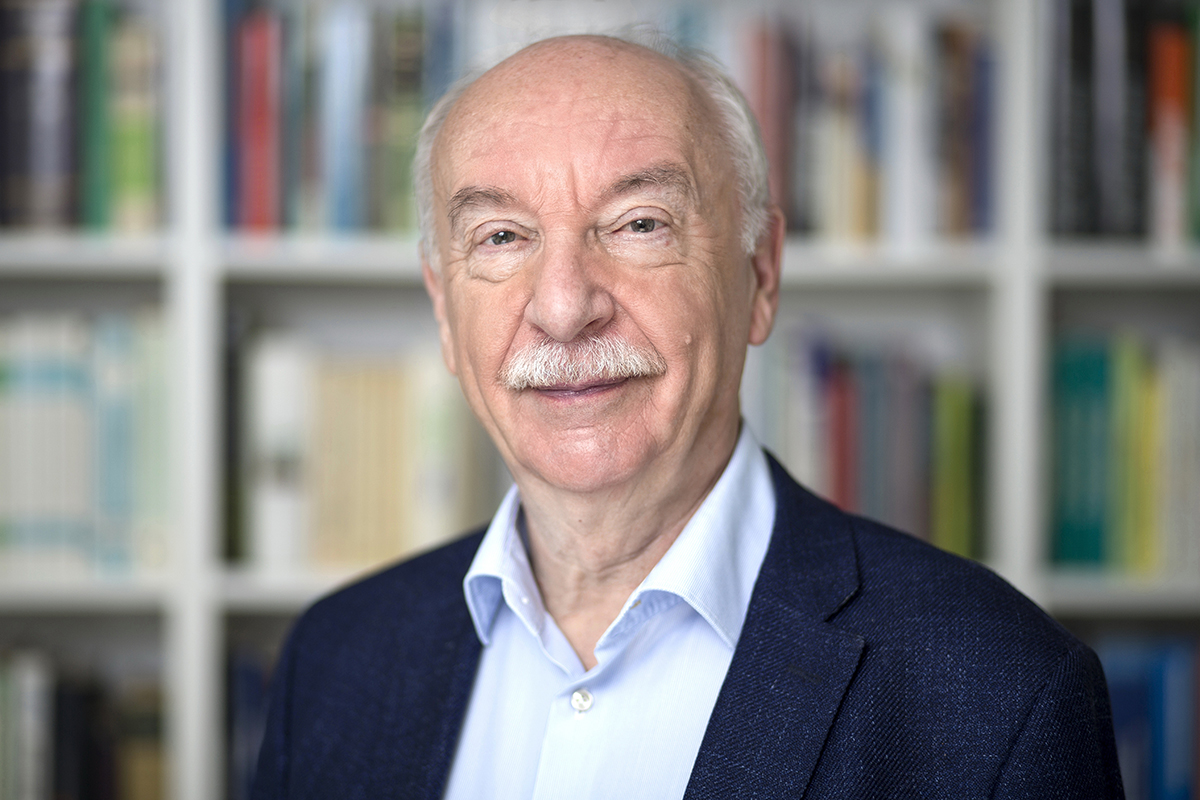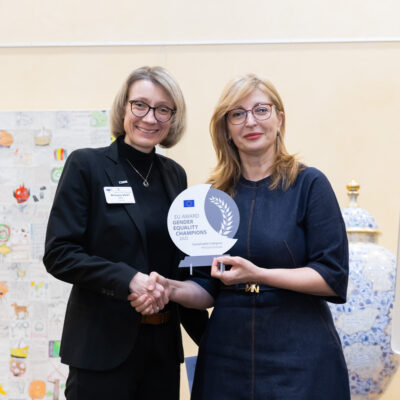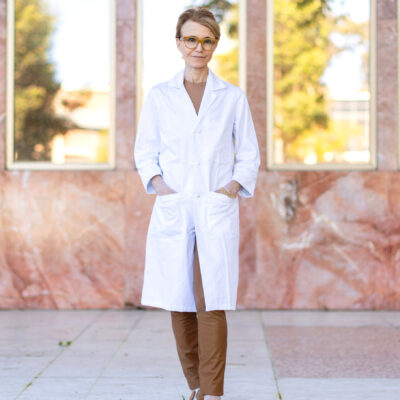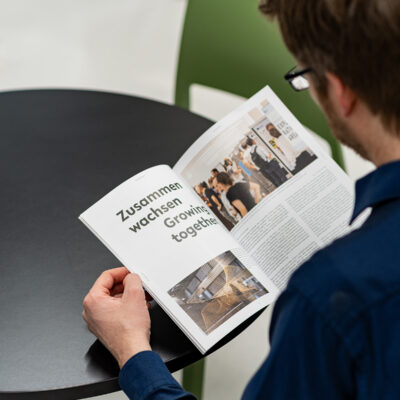‘Uncertainty is something we normally don’t like,’ observes the renowned psychologist and risk researcher Professor Dr Gerd Gigerenzer, who serves as Director of the Harding Center for Risk Literacy and most recently authored the book “Klick. Wie wir in einer digitalen Welt die Kontrolle behalten und die richtigen Entscheidungen treffen” (Click. How we stay in control and make the right decisions in a digital world). His research centers around questions of how to make rational decisions with limited time, limited information, and an uncertain future, among other topics. In an upcoming talk as part of the new ‘Uncertainty Talks’ lecture series, Gerd Gigerenzer will speak about dealing with uncertainty in the digital age. The talk, which had originally been planned to be held on 21 November, has now been rescheduled for Monday, 30 January 2023, at 6:30pm at the Center for Interdisciplinary Research (ZiF) at Bielefeld University. The event is free of charge.
‘Google knows us better than we know ourselves,’ says Gigerenzer. Algorithms arebeing marketed as omniscient, and governments from China to Germany are promising greater security if only the public would allow for more monitoring. ‘How can we learn to deal judiciously with uncertainty?’ poses Gigerenzer as a central question.
‘This is an especially relevant and highly charged topic in times of crisis and in this environment where the complexity of information is increasingly at a rapid pace,’ says Professor Dr Andreas Zick, Director of the Institute for Interdisciplinary Research on Conflict and Violence at Bielefeld University. ‘Gerd Gigerenzer is one of the most prominent risk researchers of our time – and we should listen to him,’ says Zick. Dr Zick, a conflict scholar, is organising the Uncertainty Talks together with historian Professor Dr Silke Schwandt and economist Professor Dr Herbert Dawid, both also of Bielefeld University. As Silke Schwandt explains: ‘In his work, Gerd Gigerenzer describes, for instance, how uncertain conditions can contribute to citizens accepting undue overreaching from authorities or believing in Fake News. And he also points to a path forward: namely, how people can overcome this self-inflicted disempowerment.’

© A. Sattler
Interview: ‘Where technology is taking us is a new experience of uncertainty’
On the occasion of his lecture at the Center for Interdisciplinary Research, Gerd Gigerenzer speaks about what it means to deal with uncertainty in today’s world in an interview with Bielefeld University.
In your opinion, why is the digital age contributing to greater uncertainty for people?
Gerd Gigerenzer: Digital technology is changing us all – our attention, our concentration, and also our values. We are more connected than ever before. Children who are born today will likely never experience private moments in their lives in which they are not being monitored, rated, and analysed. At the same time, we are also being inundated with media hype that promises us the world, up to and including eternal life in the cloud. Where this technology is taking us – and the interests of the tech billionaires behind it – is a new experience of uncertainty.
To what extent do uncertain conditions contribute to citizens accepting undue overreaching from authorities or believing in Fake News?
Gerd Gigerenzer: Governments and Big Tech companies are trying to convince us that we will be better off by going along with their authority and receiving security in return. China is currently in the process of expanding its Social Credit system nationwide, where all citizens are given a point value as a measure of their socially and politically compliant behavior, as well as all other types of behavior that can be captured digitally. Individuals with a high score receive rewards, such as preferential treatment at hospitals; those with low scores are punished – in the past years, some ten thousand people were not allowed to buy airline tickets or send their children to the best private schools. The majority of Chinese people find this system to be fair. In Germany, according to my studies in 2022, 20 percent of adults were already in favor of introducing a social credit system – and the rate was even higher among younger people and civil servants. State authority and surveillance are gaining in acceptance – privacy is a thing of the past.
According to your research, what strategies are especially helpful when it comes to dealing with uncertainty?
Gerd Gigerenzer: Everyone has to learn to start critically thinking again. In a study on British journalists who write about artificial intelligence, 60 percent of this media reportage is just uncritical reiteration of industry messaging. According to a study on 3,000 students in California, 96 percent were unaware of how to judge the credibility of a website. If our refrigerators, houses, and cities are supposed to become ‘smart,’ then why not people, too?
More Uncertainty-Talks
The ‘Uncertainty Talks’ series was born out of a research initiative at Bielefeld University dedicated to the in-depth study of uncertainty coordinated by Professor Dr Silke Schwandt, Professor Dr Andreas Zick, and Professor Dr Herbert Dawid. Uncertainty has long been seen as an omnipresent threat that needed to be controlled and kept in check. In contrast to this, the new initiative seeks to broaden and advance research on uncertainty and precariousness by focusing on the myriad ways in which people navigate uncertainty. The ‘Uncertainty Talks’ are meant to help contribute to greater understanding of these research approaches by providing a range of different disciplinary perspectives.
In addition to Gerd Gigerenzer’s talk on Monday 30th, the ‘Uncertainty Talks’ series also included the following events:
- Professor Dr David Tuckett, an economist and medical sociologist from University College London in the UK, gave a talk titled ‘Conviction Narrative Theory: Understanding ambivalence as a way forward.‘ on December 5th 2022.
- Professor Dr Armin Nassehi, a sociologist from the Ludwig Maximilian University of Munich, gave a talk titled ‘Decisions under conditions of uncertainty: a rhetorical repetition, or an incremental matter of fact?’ on December 19th 2022.
The Center for Interdisciplinary Reserach (ZiF) at Bielefeld University is an independent, thematically unbounded research institution that is open to scientists from around the world in all fields of research. The ZiF is located on Bielefeld University’s South Campus at Methoden 1, 33615 Bielefeld.




